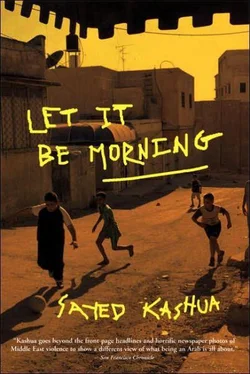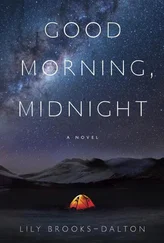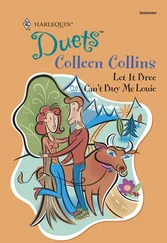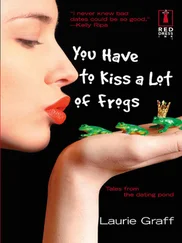My wife and daughter are still asleep. I decide to make breakfast for my little girl. I’ll let my wife sleep it off. There’s plenty of powdered milk, I tell myself, enough for a whole week more. I push the cup right under the faucet in the kitchen sink so as not to lose a single drop. I turn it, but all I get is a few drips. Though I’d figured we still had another half tank of water on the roof, there’s no water. I climb upstairs, out to the roof and look out over the horizon. The military tanks are still there, surrounded by small figures in green uniforms. I glance at the water tank and discover that the lid has been removed and thrown to the side. I look inside. It’s completely empty. Someone has stolen our water. I put my hands to my head. My breathing quickens. From my roof, I can see my brother’s and I can tell that the tank on his roof is uncovered too. Those bastards, I’ll kill them, those SOBs. Why the hell didn’t I think of it? How could I be so careless when things were like this, how could I be such an asshole? There’s nothing easier, after all, than climbing up on the roof and stealing water, but who’s the SOB who would do such a thing? A strong pain darts through my head. I try to take deep breaths, to get my breathing back to normal, but to no avail. I feel a strong urge to scream as loud as I can. I grit my teeth and, without stopping to think about what’s happening to me, I clench my fist and start bashing the empty tank, which responds with a powerful echo.
All of my calculations are off now. But things will be okay, I tell myself. If need be, we’ll steal water. The question is where we’ll steal it from. Who has any water left? I bet those scumbags climbed up on the roof and could hardly believe their eyes when they saw so much water, the SOBs. They took it all, didn’t leave us so much as a drop. I go back down, trying to calm myself, thinking how we can manage with the bottles I bought and hid in the pantry. I count them again. There are five bottles of water and seven of Coke. My parents must have a few more, and I need to find out how many my brother has. This could last us no more than three days. We’ll use them for nothing but drinking. The water will be for the children — my brother’s and mine. I convince myself that a three-day supply is all we need. If it lasts longer than three more days, other people will starve to death before we do, and it’s inconceivable that any army or any country in the world would let people collapse that way, let little children die of thirst and hunger before their very eyes. The commanders must know what things are like in this village, down to the last detail. They know perfectly well that nobody has died of malnutrition yet. They’re undoubtedly eyeing the village through their binoculars all the time, and I bet they have their people on the inside, reporting to them about everything that happens. Bastards. I’m sure it’s those collaborators who stole our water. They ought to be killed.
I take another bottle of water out of the pantry and pour some of it into the baby’s bottle. I won’t have any myself. Suddenly I feel a twinge of shame about how I skimped on water but never gave any thought to theft. How could I have overlooked the possibility of theft damn it? Don’t I remember where I am? Had I known the water would be stolen, I would at least have had a shower first. I’ve never been so filthy and smelly in my life.
The baby’s bottle is ready. I leave it on the counter and have another cigarette by the window. It’s still early in the morning, and people are in no hurry to leave their homes. You can hear the crying of babies in the homes nearby. My parents must be awake by now, but I’ll wait till my wife and daughter wake up and then we’ll join them. The baby is the first to wake up. I lift her off the sofa, hug her, say good morning in the tone that she’s grown used to. I wonder if she’s aware of what’s going on around her. I put the bottle to her lips and she clasps it tightly and starts drinking. Ever since she was born, I’ve been worrying. In the early months I worried about crib death, about unexpected reactions to inoculations, about road accidents, about childhood illnesses. Sometimes I’d wake up in a panic and go check if she was still breathing. It never occurred to me that I’d actually have to worry about her having enough to eat. I never imagined a moment when I’d picture my little girl starving to death or lying on her bed bleeding after a bullet hit her. Scenes of children killed in the Intifada run through my mind. I think of the funerals and the posters of Palestinian babies who’d had half their skulls shot off, or photographs taken at hospitals, of babies with blood-soaked diapers, babies who had died and looked as if they were just asleep. Israeli TV doesn’t actually show pictures of dead Jewish babies. They make do with pictures of the child when he or she was still alive. I hold my daughter tight, clutching her. The sound of her sucking on her bottle intensifies my fears. It’s the first time I feel hopeless. Because until now, despite all we’ve been through, I knew I’d manage somehow and one way or another I’d figure out a way for my loved ones and myself to survive.
My wife wakes up and turns her head nervously till she sees me and the baby. “What happened?” she asks, concerned. “Everything’s okay,” I quickly reassure her. I move closer and finger her hair, hoping she still wants my support. She bows her head, trying to sort out what has happened to her during the night and to figure out how much of it was reality and how much a dream. She takes the baby from me, with the bottle still in her mouth, places her in her lap and asks, “Was there any more shooting after I fell asleep? Have they left?” I shrug. “No, they didn’t shoot any more after that. I don’t know if they’ve left,” I lie. “I haven’t gone outdoors yet. We’ll go over to my parents’ soon and find out what’s going on. But I don’t think there’s going to be any school today.”
There is nobody in the streets except the Palestinian workers. The mayor and villagers have ordered them to collect the garbage and dispose of it in the soccer field at the outskirts of the village. People are in no hurry to leave their homes this morning. They’re suspicious, still unable to figure out what exactly was happening during the night and what the shooting was all about. The Palestinians are the only ones still working. Some of them see us making our way to our parents’ home and make a sign for food by putting their hands to their mouths. I ignore their gestures, not because I don’t care but because I don’t want to give the impression that we have any food left. I shrug as if to indicate I wished I had some. My parents’ house looks dirtier than usual. There are spots on the floor despite my mother’s attempts to get rid of them with a dry rag. The fact that their tank would run dry before ours was to be expected. Their home has always been the place where everyone congregated and where everything happened, a kind of extended-family living room. We ate most of our meals there even before all this began, and Mother was never one to skimp on food or water. But my calculations were off and in fact somehow the faucets in my parents’ home remain the last ones from which we can still squeeze a few glasses of water.
“Do you believe it? They’ve stolen our water,” my brother greets me. “They climbed up on my roof and yours and stole the water.” He tells me this as if it were new to me. For him it is yet another thing to tell, and he is very agitated as he says it — more agitated to be standing there and telling me such things than he is at the implications of his report. I nod and look at my wife, who is becoming even more anxious. “It isn’t so terrible,” I reply at once, but I’m actually thinking of my wife as I say it. “I bought a few bottles of drinks that should last us quite a while. I promise you that even though they’ve stolen our water, we’ll be the last ones in the village to run out. By then everything will be okay.”
Читать дальше












